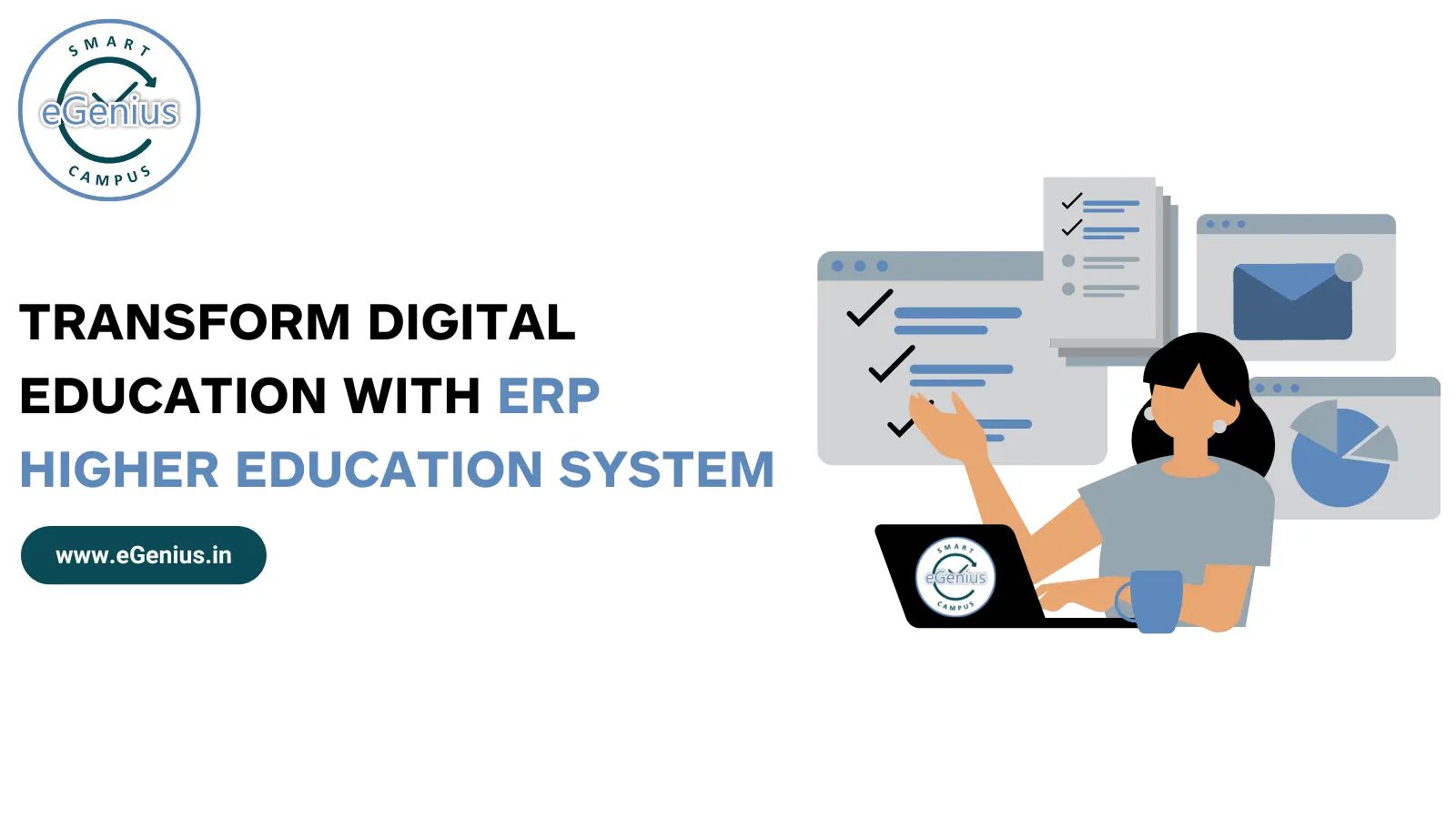In the ever-evolving landscape of education, higher education institutions are continuously seeking innovative solutions to streamline their operations, enhance student experiences, and stay competitive. One such transformative solution is the implementation of ERP systems specifically designed for higher education. In this blog, we will explore the concept of ERP systems, their benefits, key features, challenges, and the future of ERP higher education.
Table of Content
- Understanding ERP Systems
- Benefits of ERP Higher Education
- Key Features of an ERP System for Higher Education
- Challenges and Considerations
- Future of ERP Higher Education
Understanding ERP Systems
ERP systems are software platforms that integrate and automate the core processes of an organization. For higher education institutions, this includes everything from admissions and enrollment to finance, human resources, and student services. ERP higher education systems are tailored to meet the specific needs of colleges and universities, providing a centralized platform for managing all aspects of institutional operations.
Benefits of ERP Higher Education
Implementing an Education ERP in higher education brings numerous benefits:
1. Streamlined Operations: By integrating various functions into a single system, ERP higher education systems eliminate redundant processes and streamline operations. This leads to increased efficiency and productivity.
2. Enhanced Data Management: With all data centralized in one system, institutions can easily manage and access information. This improves data accuracy and reduces the risk of errors.
3. Improved Decision-Making: ERP systems provide real-time data and analytics, enabling administrators to make informed decisions quickly. This is crucial for strategic planning and resource allocation.
4. Better Student Experience: ERP higher education systems offer features such as online registration, grade tracking, and personalized learning plans, enhancing the overall student experience.
5. Cost Savings: By automating manual processes and reducing the need for multiple software systems, ERP systems can lead to significant cost savings for institutions.
Know about Top 10 Benefits of Institute Management Software
Key Features of an ERP System for Higher Education
An effective ERP higher education system should include the following key features:
1. Student Information System (SIS): Manages student data, including enrollment, grades, attendance, and academic records.
2. Finance and Accounting: Handles budgeting, financial reporting, and accounting processes, ensuring compliance and financial transparency.
3. Human Resources: Manages employee records, payroll, benefits, and recruitment processes.
4. Admissions and Enrollment: Streamlines the admissions process, from application submission to acceptance and enrollment.
5. Learning Management System (LMS) Integration: Integrates with LMS platforms to provide seamless access to course materials, assignments, and grades.
6. Reporting and Analytics: Provides real-time data and customizable reports for informed decision-making.
7. Communication Tools: Facilitates communication between students, faculty, and staff through integrated email, messaging, and notification systems.
Challenges and Considerations
While the benefits of ERP higher education systems are substantial, institutions must also consider the challenges involved in implementation:
1. Cost: The initial investment in an ERP system can be significant. Institutions must carefully evaluate the cost versus the long-term benefits.
2. Change Management: Implementing an ERP system requires significant changes to existing processes. Effective change management strategies are essential to ensure a smooth transition.
3. Training and Support: Adequate training for staff and ongoing support are crucial for the successful adoption of the system.
4. Data Security: With the centralization of data, ensuring robust security measures is paramount to protect sensitive information.
Future of ERP Higher Education
The future of ERP higher education systems is promising, with several trends shaping their evolution:
1. Cloud-Based Solutions: More institutions are adopting cloud-based ERP systems, offering scalability, flexibility, and reduced IT infrastructure costs.
2. Artificial Intelligence (AI): AI-powered features such as predictive analytics, chatbots, and personalized learning recommendations are becoming integral parts of ERP systems.
3. Mobile Accessibility: Mobile-friendly ERP systems enable students, faculty, and staff to access information and perform tasks on the go.
4. Enhanced Integration: Future ERP systems will offer even better integration with other educational technologies, providing a seamless user experience.
5. Focus on Student Success: ERP systems will continue to evolve with a greater focus on enhancing student success through personalized learning experiences and support services.
In conclusion, eGenius ERP higher education systems are revolutionizing the way higher education institutions operate. By integrating various functions into a single platform, these systems offer numerous benefits, including streamlined operations, enhanced data management, improved decision-making, and a better student experience. However, institutions must carefully consider the challenges and plan effectively to ensure successful implementation. As technology continues to advance, the future of ERP higher education looks bright, with trends such as cloud-based solutions, AI integration, and mobile accessibility set to further transform the educational landscape. Embracing these systems is essential for institutions looking to stay competitive and provide the best possible experience for their students.
Know more about the College Management System and School Management System.















